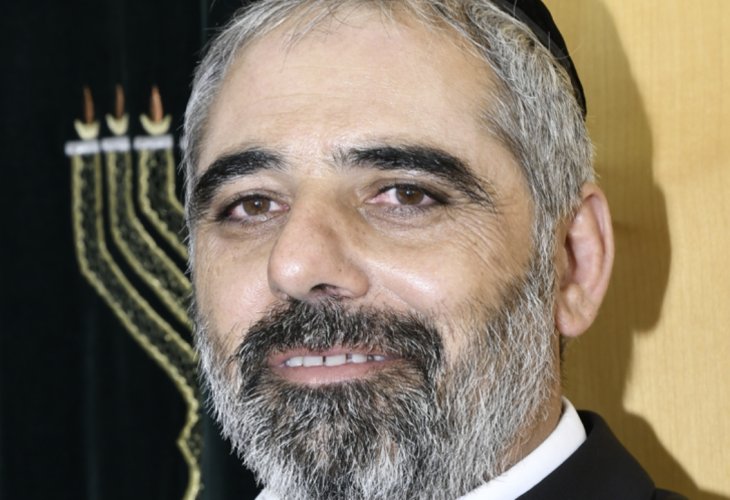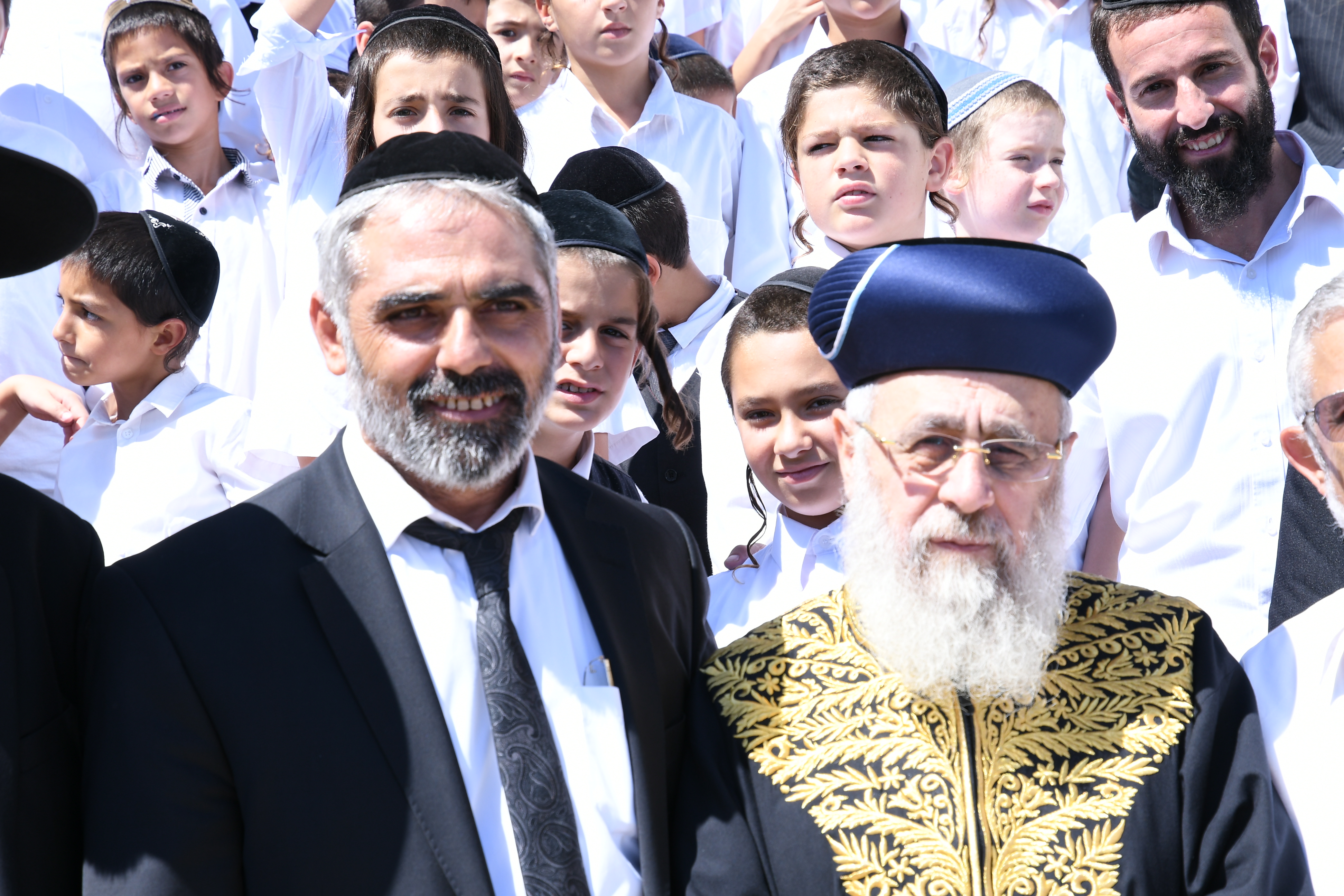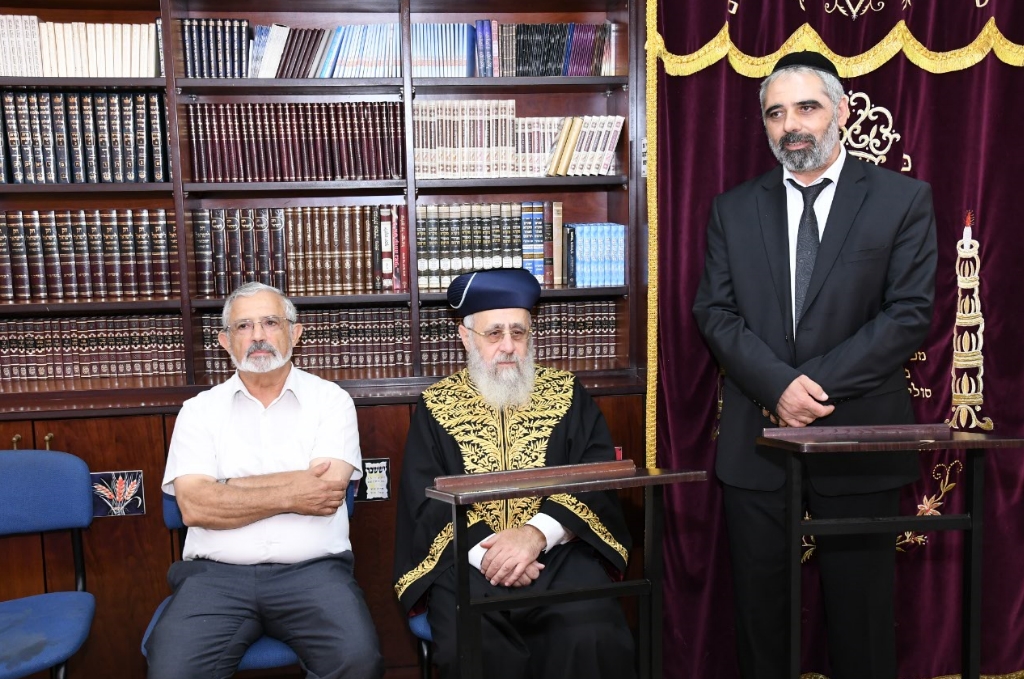"My Brother Proposed a Deal: Find One Mistake in the Torah - and I'll Go to the Disco with You on Shabbat"
Yehuda Chaim had three brothers who became ba'alei teshuva, but he wasn't interested in Judaism until his older brother presented him with a challenge during the shiva for their father. Since then, he not only became ba'al teshuva but also turned into a well-known Haredi community activist in the north and became the Deputy Mayor of Kiryat Shmona on behalf of Shas.
 Yehuda Chaim
Yehuda ChaimTwenty years ago, Yehuda Chaim's father, now the Deputy Mayor of Kiryat Shmona on behalf of Shas and a well-known Haredi community activist in the north, needed to undergo a simple gallbladder surgery.
As rarely happens, the simple surgery became complicated, leading Yehuda's father into a severe condition. The gallbladder opened up inside the abdomen, causing a severe infection. He underwent five surgeries, with Yehuda by his side throughout.
"After a month and a half in intensive care, the department head decided he was essentially already gone, with only the ventilator keeping him alive," he recalls. "She told me to call the family, so I contacted my brothers. My older brother lived in Bnei Brak and is Haredi. It was nighttime, and he said he couldn't reach us before morning due to lack of a car or driver's license, but in the meantime, he would go to Rabbi Chaim Kanievsky to request a blessing and pray for our father's recovery."

In Chaim's eyes, who wasn't religious at the time, the situation seemed puzzling. He was sure his father was going to die, and there was nothing to be done about it. But when the older brother arrived the next morning, after following Rabbi Kanievsky's instructions to donate 18 coins to charity and add the name 'Raphael' to the ailing father's name, the 'dying' man's condition began to improve miraculously. Four days later, he returned home, healthy and whole. A medical miracle that none of the doctors could understand.
A year and a half later, a new medical emergency arose. Yehuda's father noticed swelling in his abdomen. Yehuda Chaim took him to the hospital, where they reported an enlarged and swollen liver. "I don't understand medicine, but they did their tests and explained to me that he had a very rare liver cancer, and he had maybe ten days to live."
Yehuda did not share the diagnosis with his father but took him home and cared for him. Ten days later, he passed away.
"During the shiva, I sat with all my brothers, including three Haredim from Bnei Brak," he says. "My older brother became ba'al teshuva in sixth grade and brought along two others. During the shiva, he tried to persuade me to come closer to Hashem, but I told him I didn't believe in anything. Then he proposed a deal: 'Find me one falsehood in the Torah, and I will go with you to the disco on Friday night.' I agreed immediately, confident that I would have no trouble proving him wrong."
After the shiva, Yehuda went to a local kollel and opened the largest book he saw: Rambam's "Sefer Mada." The opening lines appealed to him: "The foundation of foundations and the pillar of wisdoms is to know that there is a First Being."
"I then said to Hashem: if you want me to become a ba'al teshuva, give me a sign. I opened a Tanakh and landed on the verse: 'And on the eighth day, the flesh of his foreskin shall be circumcised.' I immediately decided to investigate why circumcision should be specifically on the eighth day and discovered, to my surprise, that precisely on that day, the blood has the highest concentration of the substance that aids clotting."
From there, Yehuda embarked on an intensive reading journey, convinced that Judaism is indeed true and that he should return to Hashem. "When I returned, I decided I would go all the way: not half or a quarter. I left my business and began studying half a day. Initially, my wife didn't connect to the idea, and the children remained in secular schools. Today, thank God, she has surpassed me by far. My daughter studied at the Sharansky seminary and is married to a Torah scholar, and my son studied in a kollel. I've been blessed with good children, thank God."

After six years in this plan, Yehuda felt a need to find an activity 'that helps me feel I'm doing something for Hashem,' as he puts it. He opened a charity fund and later began organizing food distributions. Later on, noticing that ba'alei teshuva do not remain in Kiryat Shmona due to the lack of Haredi institutions, he initiated the opening of local Talmud Torah and Beit Yaakov. "I also got involved with the 'Tiferet' organization, which established a kollel here for avrechim who study all day and engage in outreach for two hours," he says. "My wife started there as a secretary, and later they approached me to help with its maintenance, along with the Wolfson Foundation." He is now planning to establish a unique kollel under his management in Kiryat Shmona, which will also serve outreach needs.
How did you get into politics?
"Ten years ago, Shas approached me to join as number 2 on their list. I wasn't interested back then, but I reached out to Rabbi David Abuchatzeira, whom I consult on all my questions, and he told me to go for it. I worked very hard and brought in many votes in that campaign, but we were a few votes short of getting in. In the last term, I received another approach from Shas, and this time I did join, serving as Deputy Mayor today - without a salary, because I want to invest wholeheartedly and remain committed only to the public. Two years ago, I wanted to leave political life, but Rabbi David didn't allow me. He said I am a public emissary obligated to those who voted for me, so I stayed."
Yehuda, born in Ramla, has lived in Kiryat Shmona since the age of 13 when his parents moved to the city due to his mother's asthma. Even before returning to teshuva, he knew many people from the entire area, including many kibbutzim, and says that the connections remained warm even after he became Haredi.
"Due to my business, the tire shop, people knew me everywhere because I was almost exclusive in the area. When I became a ba'al teshuva, some were initially nervous, but today they think I'm a great tzaddik...I continue to stay connected with everyone. Kiryat Shmona is a place of good, traditional people, not anti-Judaism at all. And there are amazing people in the kibbutzim, too: some even bring me the vouchers they receive for the holidays so I can distribute them to the needy. Thank God, I connect very well with everyone – and I love them all."

